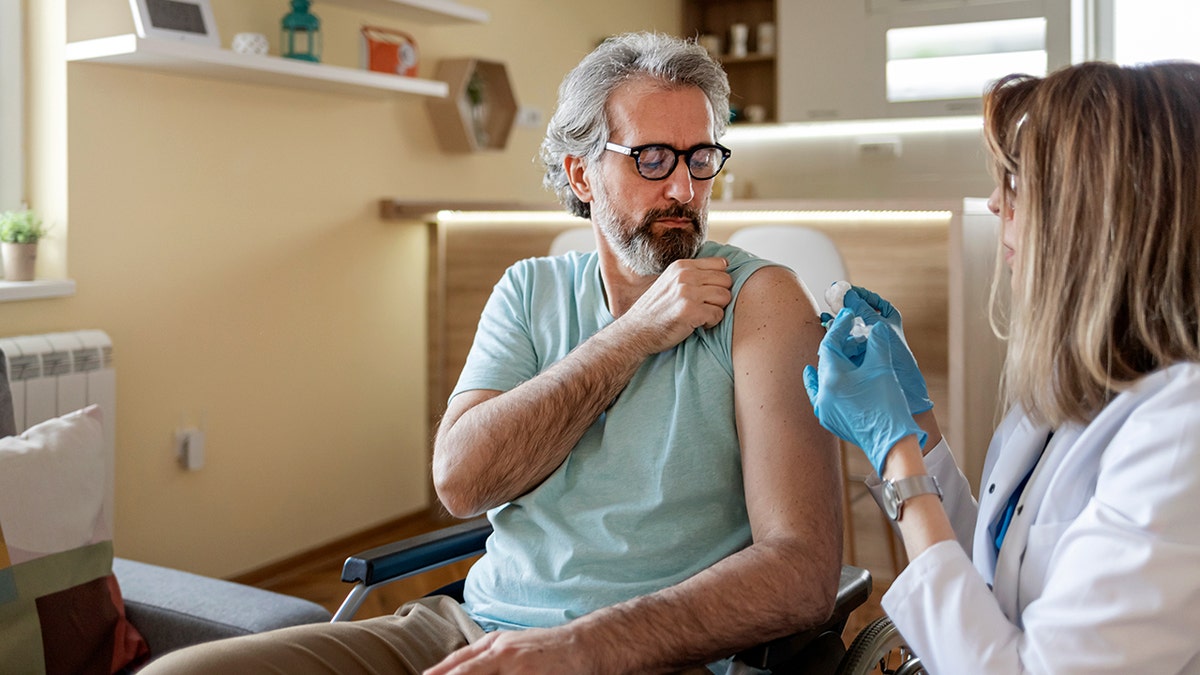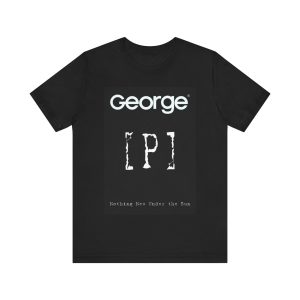
NEWYou can now listen to Fox News articles!
Certain viruses could make people more susceptible to heart disease, new research suggests.
An independent study showed that people who contracted COVID or influenza faced a “dramatically” greater risk of heart attack or stroke — up to three or five times higher — in the weeks following the infection.
The researchers reviewed 155 scientific studies to arrive at these findings, which were published this week in the Journal of the American Heart Association.
HIDDEN CAUSES OF HEART ATTACKS OFTEN OVERLOOKED OR MISDIAGNOSED, STUDY FINDS
“It is well-recognized that human papillomavirus (HPV), hepatitis B virus and other viruses can cause cancer; however, the link between viral infections and other non-communicable diseases, such as cardiovascular disease, is less well understood,” said Kosuke Kawai, lead author of the study and adjunct associate professor at the David Geffen School of Medicine at the University of California, Los Angeles.

Certain viruses could make people more susceptible to heart disease, new research suggests. (iStock)
“Our study found acute and chronic viral infections are linked to both short- and long-term risks of cardiovascular disease, including strokes and heart attacks.”
The researchers found that people are four times as likely to have a heart attack and five times more likely to have a stroke in the month after a positive flu test, according to an AHA press release.
‘HARMLESS’ VIRUS FOUND LURKING IN PARKINSON’S PATIENTS’ BRAINS, NEW STUDY SHOWS
In the 14 weeks after contracting COVID, people were three times more likely to have a heart attack or stroke, and had an elevated risk for up to a year.
When the body fights off a virus, the immune system releases chemicals that cause inflammation and make the blood more likely to clot, the release noted.
These effects can sometimes linger even after the person has recovered from the infection. Ongoing inflammation and clotting can put extra strain on the heart and contribute to plaque buildup in the arteries, which may help explain why some people face a higher risk of heart attacks or strokes in the following weeks.
CANCER SURVIVAL APPEARS TO DOUBLE WITH COMMON VACCINE, RESEARCHERS SAY
“The findings suggest that low-grade inflammation plays a role by increasing the activation of blood clotting and damaging the inner lining of arteries, which supply blood to our bodies,” noted Dr. Bradley Serwer, an interventional cardiologist and chief medical officer at VitalSolution, an Ingenovis Health company that offers cardiovascular and anesthesiology services to hospitals nationwide.
“While we have known about a link between inflammation and cardiovascular events, this study showed that many common viruses have more of an impact than we once believed,” added Maryland-based Serwer, who was not involved in the study.

The researchers recommended vaccination for influenza, COVID and shingles, citing studies linking a lower risk among those who received the flu shot. (iStock)
Markers of inflammation called C-reactive protein (CRP) are known to be associated with increased risk of cardiac events, the expert said.
Inflammation can damage the arteries in several different ways, including causing microscopic tears that allow “bad cholesterol” (LDL) to invade and form plaque.
SHINGLES VACCINE CONNECTED TO ‘EXCITING’ HEALTH BENEFITS IN LARGE STUDY
“Further inflammation can destabilize these plaques, causing them to rupture, thus causing a heart attack or stroke,” Serwer said. “Inflammation also triggers the clotting process by activating platelets.”
Some chronic viruses, like HIV, hepatitis C and varicella zoster virus (the virus that causes shingles) were linked to long-term cardiovascular risk, the study found.
CLICK HERE TO SIGN UP FOR OUR HEALTH NEWSLETTER
Those who had HIV were found to have a 60% higher risk of heart attack and a 45% higher risk of stroke. Among those with hepatitis C, there was a 27% higher risk of heart attack and a 23% higher risk of stroke. Shingles increased heart attack risk by 12% and stroke risk by 18%, the study found.

“Our study found acute and chronic viral infections are linked to both short- and long-term risks of cardiovascular disease, including strokes and heart attacks.” (iStock)
“The elevated risks for cardiovascular disease risks are lower for HIV, hepatitis C and herpes zoster than the heightened short-term risk following influenza and COVID — however, the risks associated with those three viruses are still clinically relevant, especially because they persist for a long period of time,” Kawai said in the release.
CLICK HERE TO DOWNLOAD THE FOX NEWS APP
“Moreover, shingles affects about one in three people in their lifetime. Therefore, the elevated risk associated with that virus translates into a large number of excess cases of cardiovascular disease at the population level.”
The researchers recommended vaccination for influenza, COVID and shingles, citing studies linking a lower risk among those who received the flu shot.

Markers of inflammation called C-reactive protein (CRP) are known to be associated with increased risk of cardiac events, according to experts. (iStock)
“Preventive measures against viral infections, including vaccination, may play an important role in decreasing the risk of cardiovascular disease. Prevention is especially important for adults who already have cardiovascular disease or … risk factors,” Kawai said.
Serwer agrees that vaccination against many of these common viruses is a “key preventive strategy.”
TEST YOURSELF WITH OUR LATEST LIFESTYLE QUIZ
The researchers acknowledged some limitations of the study, including that it was based on observational studies and not randomized controlled trials.
“Because most studies examined infection with a single virus, it is unclear how infection with multiple viruses or bacteria may have affected the results,” the release stated.
CLICK HERE FOR MORE HEALTH STORIES
“The analysis focused on viral infections that impact the general public and did not identify high-risk groups (such as transplant recipients) that may be disproportionately affected.”
For people with cardiovascular disease, the researchers advised seeing a doctor to discuss vaccine recommendations.




Discount Applied Successfully!
Your savings have been added to the cart.